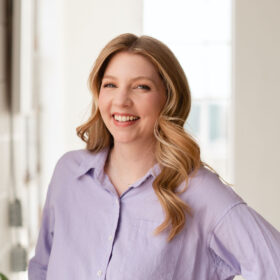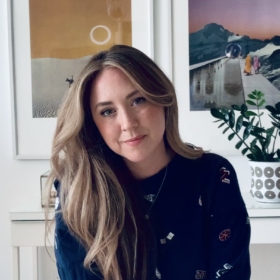About This Speaker: Shannon Lee Simmons
Shannon is a Certified Financial Planner (CFP), Chartered Investment Manager (CIM), media personality, author and founder of the New School of Finance. She is widely recognized as a trailblazer in the Canadian financial planning industry. Her book, Worry-Free Money (Harper Collins) is a national best-seller. She has a monthly column with the Globe and Mail and is a personal finance columnist for CBC’s On the Money and Metro Morning. She is also the financial expert on The Marilyn Denis Show. She is a public policy ambassador for the Financial Planning Standards Council of Canada and a certified life coach.
In 2015, she was named one of Canada’s Top 30 under 30. She also won the Notable Award for Best in Finance in 2016 and the prestigious 2016 Wealth Professional Award for Digital Innovation for launching Canada’s first online financial planning school.
She is known for her whip-smart sense of humour, enthusiasm and freakishly accurate insights into how we, as humans, relate to, use and think about money.
Shannon speaks about money in a way that puts people at ease, makes them laugh and most of all think. Her empathetic, unique and humanizing approach to personal finance has put her on the map as the go-to person to speak about money, financial literacy and empowerment. She leaves audiences laughing out loud and empowered with the tools they need to feel better about their money regardless of their ages and incomes. David Chilton, The Wealthy Barber, said that she offers a “fresh way to think about your money.”
Shannon is always finding new ways to make personal finances fun, accessible and interesting. No “stop buying lattes” advice here. In 2010, Simmons left her high-rollin’ Bay Street Job to launch the Barter Babes Project, a one-year project where she gave unbiased financial planning advice to 310 women in exchange for a bartered good or service and not money. She could not live off of lasagna, and thus decided to strike out on her own and start the New School of Finance. In 2015, she launched a campaign called @therealselfies where she would post the receipt and bill publicly beside her “awesome selfies” on social media to remind people that “behind every great selfie is a bill” because nobody posts their credit card statement after a vacation.
When she’s not seeing clients, speaking, writing, doing media or creating new spreadsheets, she tries to have a life. She loves hanging with her family at the cottage, cycling, and making endless promises to get up and go to yoga tomorrow.
Contact an agent to get Shannon's availability and rates


